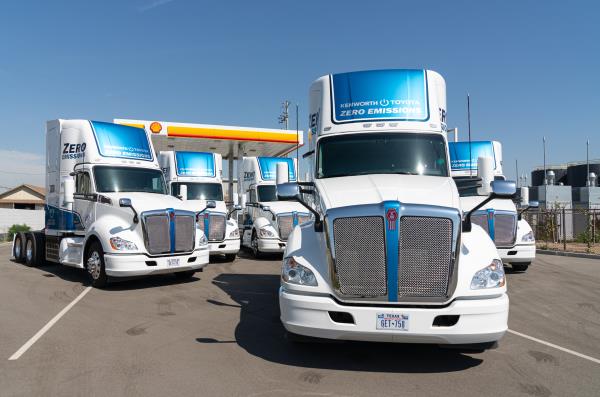
SPONSORED CONTENT -- (StatePoint) At a time when the ongoing fight against climate change has never been more critical, and new federal efforts are being made to address systemic environmental justice issues, automotive industry insiders say that a recent engineering breakthrough could usher in an era of cleaner, more sustainable trucking.
In a recent real-world demonstration, heavy-duty, Class 8 fuel cell electric vehicles (FCEVs), jointly designed by Toyota Motor North America and Kenworth Truck Company, have been proven to offer a viable zero emission alternative to diesel fuel. The hydrogen-powered T680 FCEV has a range of 300-plus miles when fully loaded to 82,000 pounds, and with no downtime for charging, and a short 15- to 20-minute fill time, it could run multiple shifts a day, covering up to 400 to 500 miles.
Why is this so significant? Trucks are currently responsible for more than their fair share of vehicle-related emissions. In California, for example, home to the busiest container port in North America, medium-duty and heavy-duty trucks make up only 3% of vehicles on the road, yet they produce 23% of the overall emissions for the state. Vehicle emissions contribute to climate change, impacting everybody, and, because of where highways and industrial operations tend to be located, truck emissions disproportionately and unfairly impact low-income communities and people of color.
When compared to diesel-fueled trucks of similar range and power, the T680 FCEV, codenamed “Ocean,” reduced greenhouse gases by 74.66 metric tons of CO2 per truck annually. Its designers say this highlights the clean vehicle’s potential to change the game. And the recently completed demonstration project was just scratching the surface of what could be possible in a future where hydrogen serves as a fuel, taking a bigger role in various applications, from heavy-duty transport to industrial power generation and passenger vehicles.
“Having a successful real-world demonstration of FCEV trucks for actual customers opens the door to broader deployment. The use of hydrogen helps eliminate CO2 from heavy-duty transport, while offering a cleaner alternative that keeps the vehicles in service -- a win for all parties,” says Andrew Lund, Toyota chief engineer, zero emission advanced product planning. “The potential for this technology to replace higher-emission powertrains is real, which helps us achieve our goals of carbon neutrality, while supporting both regulatory and societal initiatives to combat climate change and foster environmental justice.”
*****
Photo Credit: Courtesy of Toyota Motor North America




